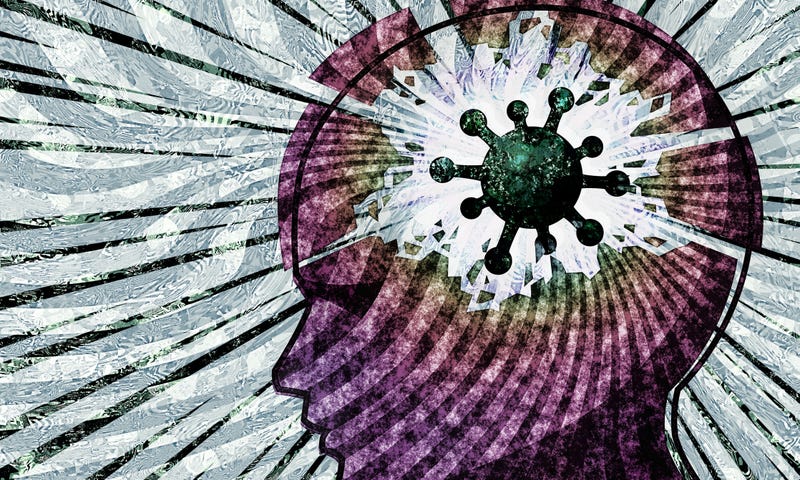
You might find that talking about the COVID-19 pandemic is an easy conversation, filled with stories of working from home, evenings filled with takeout from local restaurants, or perhaps reminiscing about virtual get-togethers.
On the other hand, the pandemic and shutdowns might be the last thing that you want to talk about.
Merav Silverman, Assistant Professor in the Department of Psychiatry and Behavioral Sciences at the University of Minnesota has a moderating tone towards our pandemic reflections: “So I'd say that there's probably some middle paths there that might be the healthiest way to kind of conceptualize this time period and move forward."
Silverman told WCCO’s Mark Freie that while not talking about it may seem like an easy way to move on, brushing the past two years of the pandemic under the rug could be a sign of post-traumatic stress disorder.
“That urge to not think about a traumatic event, to push it away, to minimize it and not going to touch it,” Silverman said are signs of post-traumatic stress.
On the other hand, the past two years might take up too much of our mental capacities.
“We know," Silverman said, "that there can be rumination or other kinds of psychiatric coping mechanisms that are unhealthy -- maybe thinking about this incessantly or too much in a way that interferes with one's ability to get back out in the world and do the things that maybe help someone live a values-based life.”
Silverman concluded that it's about finding a middle ground.
"Allow it to come up when it comes up," said Silverman, "and thinking about it and maybe not holding onto it in a way that prevents someone from moving forward with their life.”
In March of 2020, Minnesota saw Governor Tim Walz stay-at-home order take full effect. Silverman said stay-at-home orders and the threat of serious illness or death related to in-person interactions took an immediate toll.
“Cutting out this major, major aspect of human existence, and something that is really rewarding, is really taxing from a psychiatric perspective,” Silverman told WCCO.
That immediate removal from society still has impacts two years later.
“In the sense that people have smaller social networks at this point," Silverman noted, "and I think are experiencing an increase in social isolation, which comes with it all kinds of other symptoms of loneliness and depression and, you know, difficulty experiencing positive emotions.”
The pandemic also brought the turning of the dial statewide, which either opened up parts of Minnesota, or closed areas like bars, restaurants, and other social elements back down.
Despite the lifting of mask mandates and society slowly reopening today, there are still decisions to be made when it comes to COVID-19 and personal health, while remembering we are still not completely past the pandemic.
“We always had to make choices," Silverman recalls, "but I think they feel heavier now because they involved our health and the health of our children and those around us who may be more vulnerable."
Silverman, who co-leads the Dialectical Behavioral Therapy Clinic in the Psychiatry Outpatient Clinic at the University of Minnesota, says the shutdowns of March, 2020 also brought some good outcomes, especially in terms of expanding telehealth.
“There were all kinds of technical difficulties and being unable to hear or see people," said Silverman. "And at this point, two years later, it's the main way that I'm providing care.”
Silverman suggests adding life's everyday challenges into the course of the past two years amplifies the need to strengthen telehealth services moving forward.
“All of the other life stressors that are just a part of being a human have also gone on, and some of them have gone on in higher rates -- like financial worries or other kinds of things," said Silverman. "And so I think that more people are seeking out care because there's just a lot of symptoms and potentially an increase in access that more people are able to seek out care with provisions like telehealth, and hopefully this increase in awareness may have also prompted some more people.”
LISTEN on the Audacy App
Sign up and follow Audacy
Facebook | Twitter | Instagram

